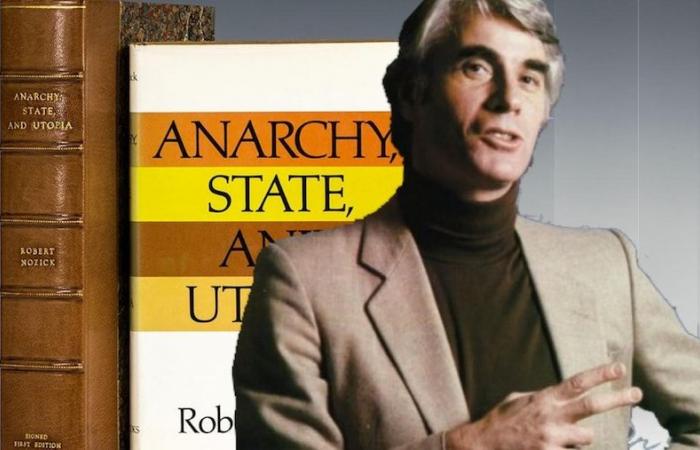Listen to the audio version of the article
Robert Nozick and his department colleague John Rawls they constitute, as we saw last week, the two extreme poles of the panorama of 20th century political philosophy. Both start from the same criticism of utilitarianism and both propose to overcome this perspective by adopting the Kantian premise according to which each individual must be treated as an end in itself and never as a means. Individual rights therefore cannot be exchanged or reduced even to obtain a greater social benefit. What is surprising is that although the starting point is the same and the path proposed is the same, the outcomes reached by the two philosophers are so diametrically opposed: on the one hand Rawls’ egalitarianism, on the other Nozick’s libertarianism .
In general terms, philosophical reflection on politics can be seen as the analysis of the nature of those which are the most relevant values with respect to our life in common: freedom, well-being, equality, happiness, power. How compatible are these values with each other? How much do they conflict? Which of these should we give prominence to? The answers to these questions generally take three different forms. The first is typical of utilitarians, who believe that there is a single prevailing principle – the maximization of social utility – to which all other principles must be subordinated because they are in some way derivatives of it. A second approach is that which focuses on a plurality of values but which nevertheless recognizes a hierarchy. Rawls, for example, falls into this category. Its “principle of priority”, in fact – we have talked about it at length in recent weeks – establishes that between the principle of equality and that of freedom it is necessary to recognize freedom as a “lexicographic” priority. Finally, there are others, like Isaiah Berlinwho accept a form of radical pluralism whereby citizens can have, and very often have, worldviews and values that are incompatible and irreducible to each other.
Cases in which it is necessary to find rules of coexistence that overcome this incompatibility of values. It would be easy, almost obvious, to make the Nozick libertarian approach fall into the first category, the one centered on the role of a pre-eminent value, and identify this value with that of freedom. It would be easy because Nozick’s approach actually falls within those of the single value. Less obvious is the fact of recognizing that this unique value is not that of freedom but, rather, that of property, and in particular “self-ownership”. One of Nozick’s most astute interpreters explains this point thus: the British philosopher Jonathan Wolff: “No one has the right to interfere with your person or property unless you have consented or have forfeited your rights by violating the rights of others – this right to liberty – is simply a consequence of this right to self-ownership” (Robert Nozick: Property, Justice and the Minimal State, Polity, 1991). It is therefore the idea of ”self-ownership”, according to Nozick, which is placed at the foundation of all the other rights from which they derive and which should be used as a decision-making compass in the face of every possible political problem. The political implications of such a vision of freedom are analyzed by Nozick in the first part of Anarchy, State and Utopia.
The starting point is the anarchist vision of freedom
Write about it Benjamin Tucker “If the individual has the right to govern himself, all external forms of government are tyranny” (“State Socialism and Anarchy”, in Woodcock, G., ed., The Anarchist Reader, Fontana, 1977, p.151 ). If we accept the absolute pre-eminence of the principle of freedom we cannot consider any form of state power legitimate, states Tucker. The task that Nozick sets himself is to start from this assumption, with which he is sympathetic, and demonstrate, instead, that even a minimal form of legitimate state can exist. A form of state that can be considered legitimate because it acts without violating the fundamental right of “self-ownership” nor the other rights that derive from it. Nozick’s task, in other words, is to try to demonstrate that anarchy is not the only logical consequence that can result from taking seriously the inviolability of the right to individual freedom. But let’s get back to the topic of “self-ownership”. This is, in fact, the concept through which Nozick develops the Kantian idea of the “separateness of persons”. We saw last week how the criticism of utilitarianism, that of Rawls and that of Nozick, starts precisely from the Kantian assumption according to which others can never be considered as a means to the achievement of my ends.
The eye lottery
This means, for example, that redistributive policies that limit the freedoms of some to promote the well-being of many – perfectly legitimate policies in a utilitarian framework – cannot be admissible either for Kant, much less for Rawls or Nozick. To express this Kantian idea of the “separateness of people” Nozick chooses the path of “self-ownership”, of self-ownership. This is the thesis according to which only the subject has the right to decide on what concerns him and for this reason he cannot be forced to sacrifice himself for the good of someone else. While it is legitimate and even laudable to do so, this is only possible when this decision is an autonomous decision that does not result from external interference. The welfare state, for example, violates the right to “self-ownership” in this sense. The welfare state, in fact, through taxation, provides for the provision of goods and services that benefit the most disadvantaged. Since this taxation is mandatory and not voluntary, the production of these goods and services is based on a form of violence, a real robbery. In this regard Nozick gives the example of the “eye lottery”. Let’s imagine that surgical technique has reached a level that allows perfectly safe eye transplants for both the donor and the recipient who, after the transplant, will be certain of being able to fully regain their sight. In a world in which unfortunately there are many who are born blind or who become blind as a result of illness or trauma, the redistribution of one eye from those who have two to those who do not even have a healthy one would represent an increase in overall utility.






